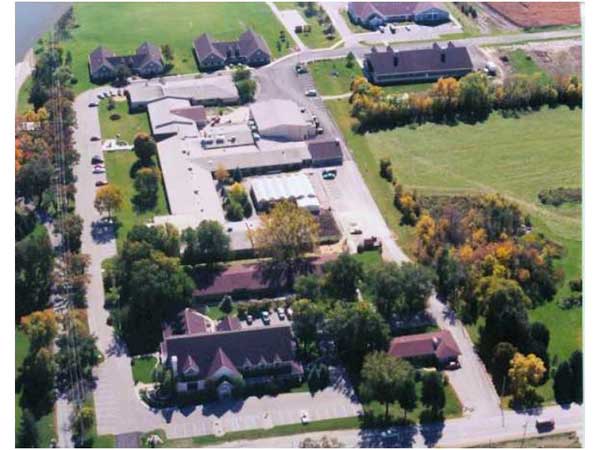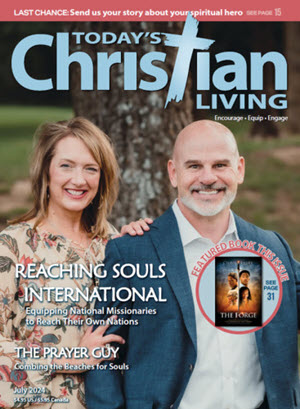Most of us are familiar with Job’s story. He was the guy who had it all: unstoppable faith, excellent health, a beautiful family, financial success, popularity, and respect in the community. If high school proms had existed back then, he would have been crowned king. Job 1:1 describes him as a man who was “blameless, upright, fearing God and turning from evil.”
Then, Satan suggested to God that Job only worshipped Him because the man had it all. The gauntlet was thrown, and Job’s trials began without any earthly explanation. He lost everything: his children, his servants, his home, his flocks, his wealth, and his esteem. All he had left was his wife — who turned out not to be a ray of sunshine — his health, and his hope in the Lord. Imagine the depth of his sorrow! Money, houses, and live-stock can be replaced — but not children. Still, the material losses must have compounded his sense of deep loss. His response? “Then Job arose and tore his robe and shaved his head, and he fell to the ground and worshiped” (Job 1:20). Job worshipped God in the midst of his mourning. That’s a hard thing to do. Not content that Job hadn’t denied the Lord, Satan went after his health. He was in so much pain from his head-to-toe boils, he wished he’d never been born, wanted to just die, avoided talking to God because he’d lose the argument, and questioned what God was doing. But still, he refused to heed his wife’s advice to “curse God and die” (Job 2:9).
When the Road Is Rough
We all face losses and sorrows throughout our earthly journey. A loved one dies. A marriage ends. A life-threatening diagnosis is pronounced. A respected spiritual leader fails us. In John 16:33, Jesus promises, “In this world you will have tribulations.” Some merely disrupt our lives for a short season. Others wound us to the core. They rob us of our innocence, the childlike belief that the world is safe, life is fair, and everything will be OK. They prompt us to hedge our hearts against future pain. They leave us shaking our fists in God’s face and screaming, “Why?”
Before we set Job up as some superspiritual, unattainable example, let’s keep in mind he had some rough moments along his journey. Though Job’s initial response was to grieve and worship, there’s certainly a tone of “I didn’t deserve this” in his subsequent speeches to his friends and to God.
I’m Angry With God; Now What?
In his new book, Angry with God, Brad Hambrick offers comforting insights for those who are just plain mad at God for the painful turns their lives have taken.
Being angry with God can be unsettling for those who love Him. It feels like disloyalty. We condemn ourselves for questioning our Heavenly Father. We feel guilty for being mad at our Savior and Lord, who sacrificed His own Son on our behalf. How can we be angry at our Creator? After all, don’t we believe “all things work together for good to those who love God, to those who are called according to His purpose” (Romans 8:28)?
Here’s the good news: God does not always find our anger unsettling. He created us with the built-in emotional capacity to get riled up about things. He wired us to go through an “angry phase” when we are grieving the loss of someone or something we hold dear. Even though it’s difficult, it’s important to work through that anger.
But Brad points out an important distinction to help us understand what it means to “be angry and sin not.”
There are two kinds of anger. Selfish anger has “self” at the root. This is the type of anger we’re supposed to refrain from (Psalm 37:8), be slow to stir up (James 1:19), and not let the sun set on (Ephesians 4:26). Sometimes we’re mad because we didn’t get what we wanted. Things didn’t turn out the way we planned. God took away someone or something dear to us. So, we face off with God and butt heads. This anger says, “I want what I want bad enough that I’m willing to sin against God to get it.” We’re angry at God.
Selfish anger stems from viewing God as the adversary, an opponent in a competition. In the end, someone will win and someone will lose. We don’t like to lose — and we understand God always wins. This type of anger calls for humble repentance. God always orchestrates our lives for our gain and to His glory, though it may not seem like it when we’re suffering. People have walked away from God because of unresolved selfish anger.
But there’s a second kind of anger: grief anger. Grief anger has a sense of injustice at the root. Sometimes we’re mad because life isn’t fair. We’re disillusioned by the inequity of it all. Some people seem to skate through life, virtually unscathed by tragedy and loss. Others suffer more than their share. We grieve our personal losses, but we also grieve the hurts inflicted on others by this fallen world we live in.
Grief anger stems from viewing God as our advocate rather than our adversary. Instead of sparring with God, we walk side by side with Him, conversing and reasoning together until we’ve worked through our anger. We look to Him for comfort, strength, and a place of refuge. We’re angry with God. Working through the grief anger phase isn’t sinful, so it requires comfort rather than repentance.
Free Indeed
It’s freeing to know we don’t have to carry the added burden of guilt on our journey to healing. It’s also freeing to know our Good Shepherd is willing to bear our burden if we’re willing to cast it on Him. But how do we even begin to find healing when our world has crumbled?
Our natural response is to look for answers. How could God do this to me? Why did (fill in the blank) have to die? Why did I have to get cancer? We ask everyone and anyone we believe might have some special insight into the situation. Sadly, pain is not a riddle. There are no satisfactory answers. Approaching pain as something that can be solved, rather than eased, paves the way for getting stuck in grief and anger.
Let’s go back to Job. Job searched his own heart and concluded he’d done nothing to warrant God’s wrath. Though he never actively solicited input from his friends, they were willing to offer it. It wasn’t the least bit helpful. It only heaped sorrow on sorrow, pain on pain. And when Job asked God why, God reminded Job that He is the sovereign, just, and mighty God who acts outside the realm of human understanding, for our good and to His glory.
We will leave this earth with many unanswered questions. “For now we see in a mirror dimly, but then face to face; now I know in part but then I will know fully, just as I also have been fully known” (1 Corinthians 13:12). But while we’re here, Brad encourages us to find the faith and courage to walk “through the valley of the shadow of death” with our Shepherd, depending fully on Him.
Brad Hambrick serves as the pastor of counseling at The Summit Church in Durham, North Carolina. He also serves as assistant professor of biblical counseling at Southeastern Baptist Theological Seminary and as a council member of the Biblical Counseling Coalition. His book Angry with God is part of a new “Ask the Christian Counselor” series now available through New Growth Press.
Learn more about Brad Hambrick and follow his blog and podcasts at bradhambrick.com.








